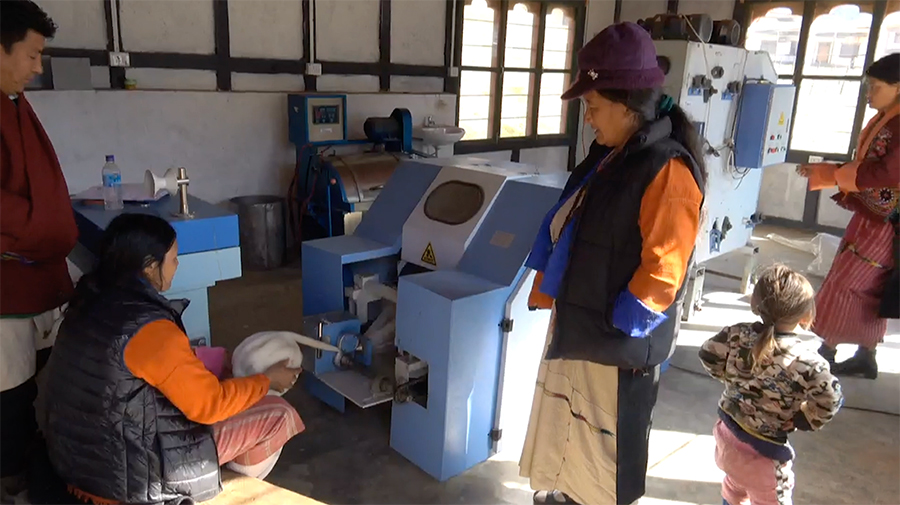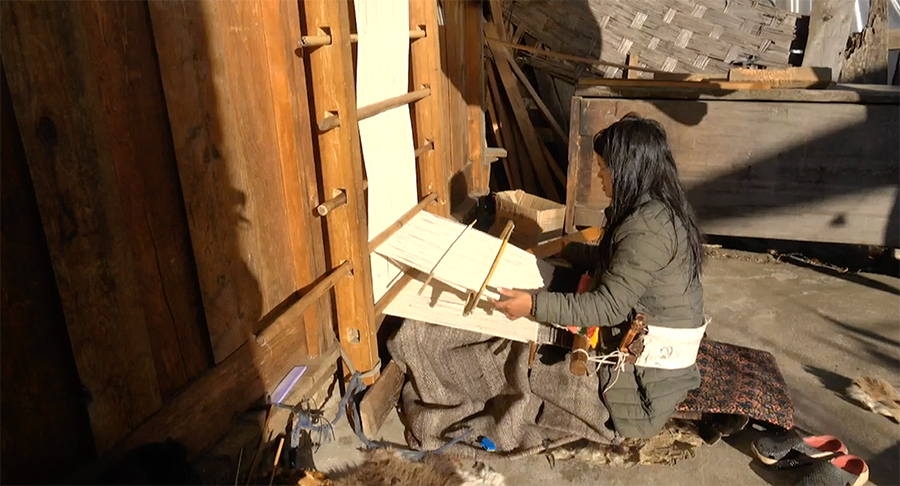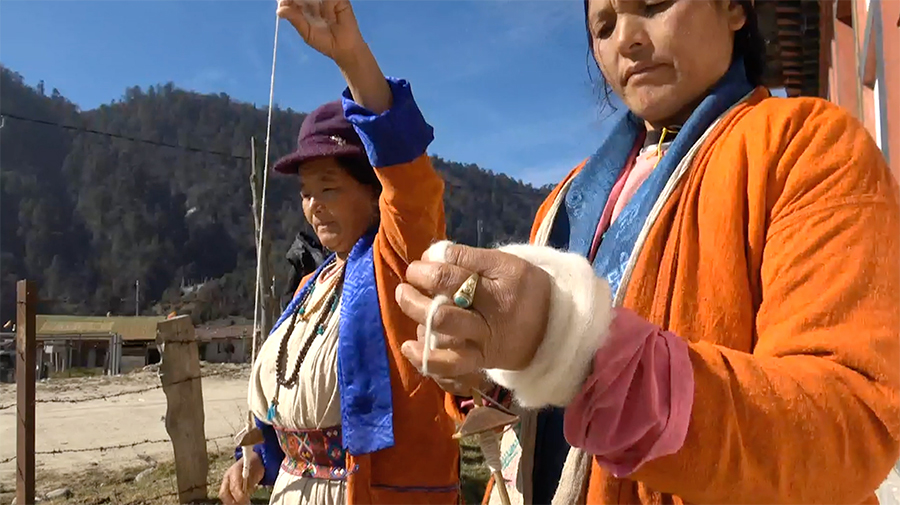 The people of Sakteng in Trashigang still weave their clothes from wool, despite the time-consuming process of producing yarn the traditional way. However, the introduction of wool-processing machines has brought new vitality to the craft. Weaving has become easier, and the quality of the yarn has improved, giving their clothes a more refined finish.
The people of Sakteng in Trashigang still weave their clothes from wool, despite the time-consuming process of producing yarn the traditional way. However, the introduction of wool-processing machines has brought new vitality to the craft. Weaving has become easier, and the quality of the yarn has improved, giving their clothes a more refined finish.
 The people of Sakteng have woven traditional clothes for generations. They raise sheep and use the wool to make their garments.
The people of Sakteng have woven traditional clothes for generations. They raise sheep and use the wool to make their garments.
 They wash the wool to remove its dirt and make it whiter, then dry it. To untangle it, they use a wooden comb with metal teeth. A wooden spindle is then used to turn the wool into yarn. These steps take several days. In the past, making one kilogram of yarn took around 4-5 days.
They wash the wool to remove its dirt and make it whiter, then dry it. To untangle it, they use a wooden comb with metal teeth. A wooden spindle is then used to turn the wool into yarn. These steps take several days. In the past, making one kilogram of yarn took around 4-5 days.
 However, all these steps are now handled by the wool-processing machine. Set up in 2023, it washes, dries, spins, opens, and cards the wool.
However, all these steps are now handled by the wool-processing machine. Set up in 2023, it washes, dries, spins, opens, and cards the wool.
“Before, it was very difficult to get wool yarn. We had to wash it, and it took about five days to complete one kilogram. Now, with this machine, it only takes a few minutes. The machine processes more than 15 kilograms a day,” said Rinchen Dema, a resident.
“This machine will help preserve our traditional dress code. Before, it was hard to process yarn using traditional methods, and fewer people wore our traditional clothes. Now, the machine makes the process easier and faster. Women can weave more easily, and people will wear our traditional dress more often,” said Dawa, another resident.
A group of 15 women operates the machine. They charge Nu 230 to process one kilogram of wool. So far, the group has processed over 60 kilograms.
 However, the group worries that attacks on sheep by feral dogs could hinder yarn production and weaving.
However, the group worries that attacks on sheep by feral dogs could hinder yarn production and weaving.
The machinery and structure were funded by the Agency for Promotion of Indigenous Crafts (APIC) with a total budget of Nu 5.2M.
APIC has now merged with the Department of Media, Creative Industry, and Intellectual Property under the Ministry of Industry, Commerce, and Employment.
Sonam Darjay, Trashigang
Edited by Sangay Chezom








